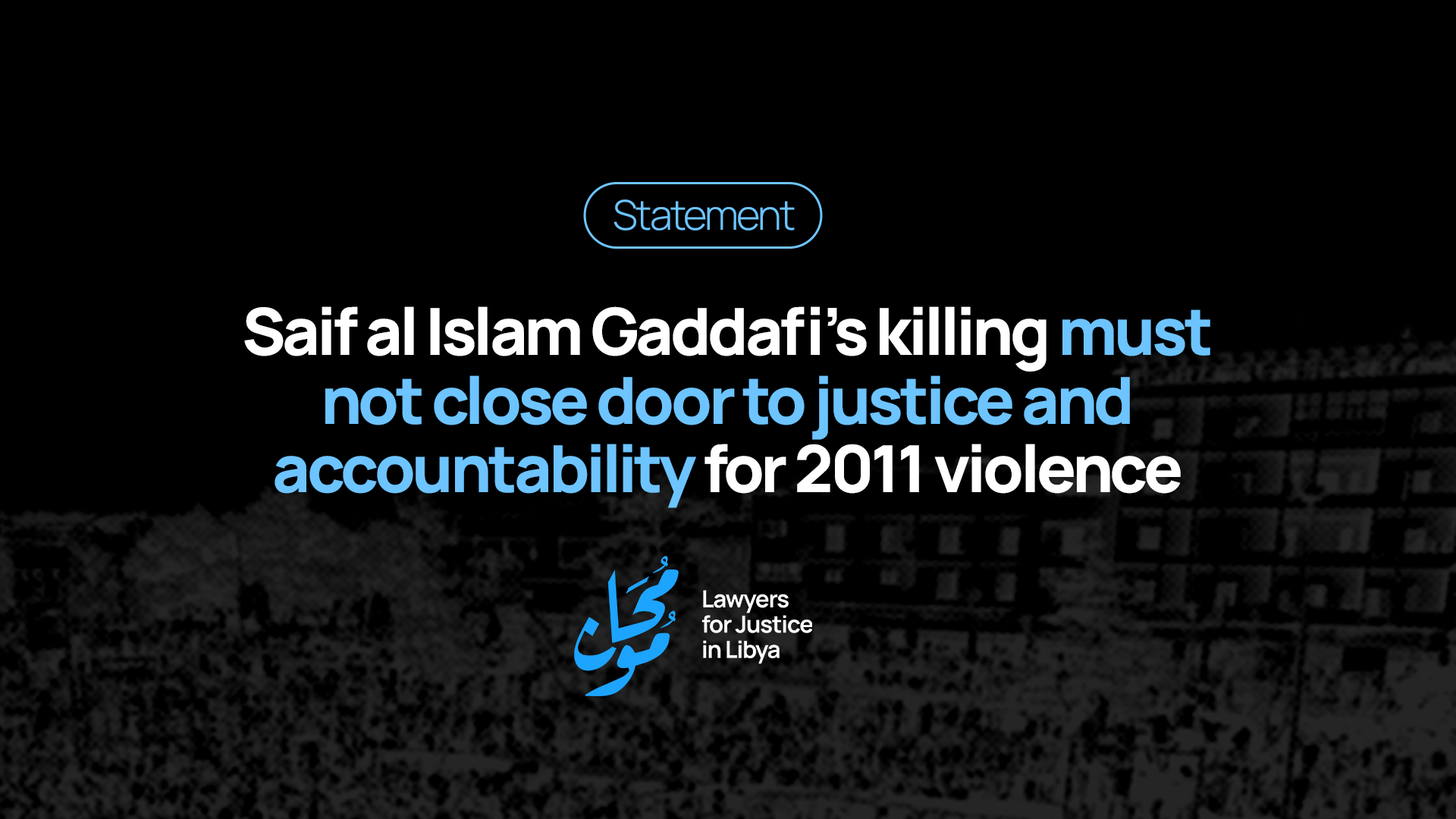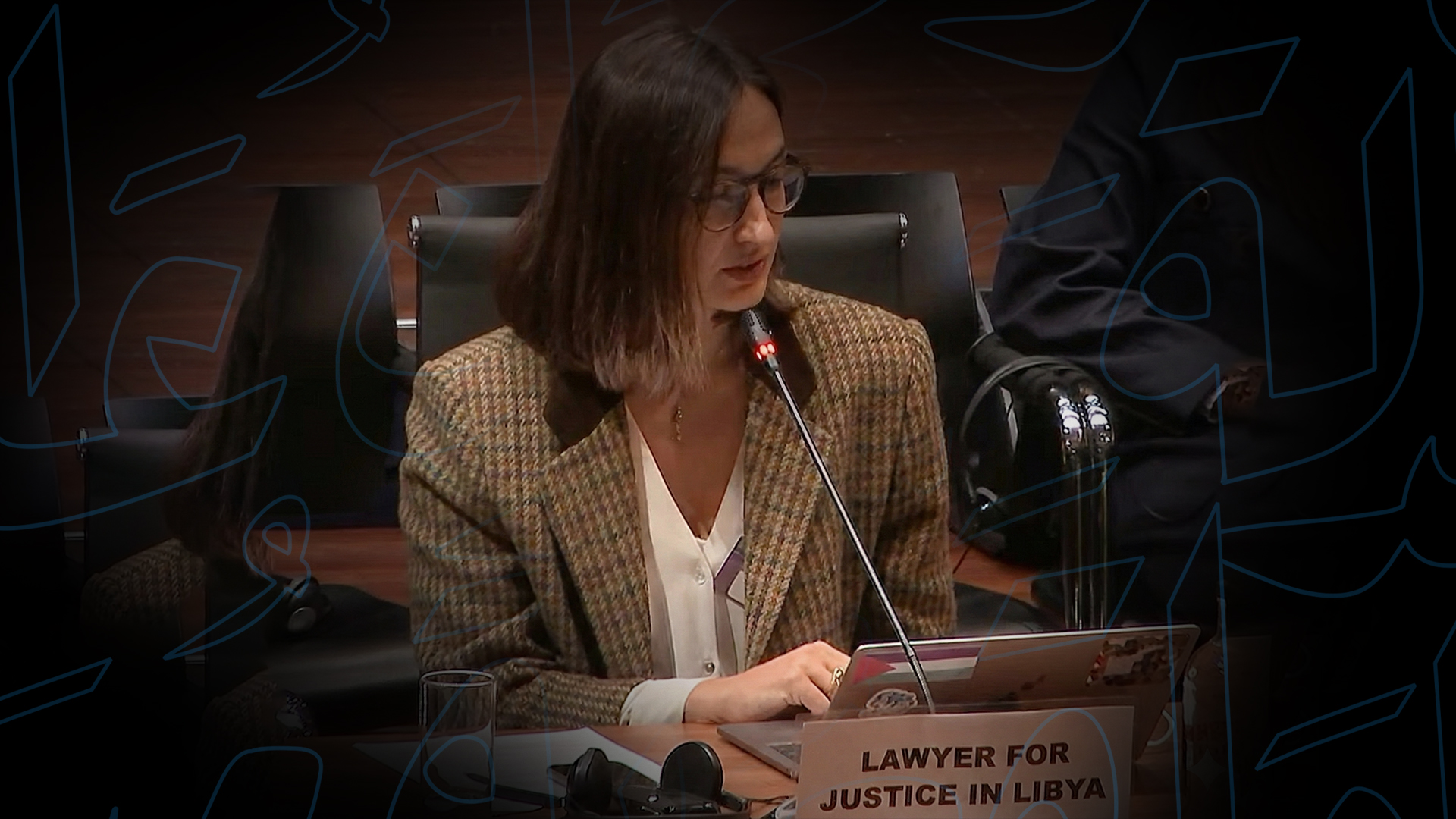LFJL welcomes the establishment of a fact-finding mission and calls for full cooperation by member states to ensure an effective mandate without delay
On 22 June, the United Nations Human Rights Council adopted by consensus a resolution that, among other things, requests the High Commissioner for Human Rights to establish a fact-finding mission for Libya (the Mission). This is a welcomed step that signals a much-needed commitment towards human rights and accountability in Libya. Lawyers for Justice in Libya (LFJL) has, for years, called for such a mechanism and sees this as a step in the right direction, and one which could help end the state of impunity that has prevailed in Libya for far too long.
The Mission, to be established pursuant to Resolution A/HRC/43/L.40, is mandated to document human rights and international humanitarian law violations and abuses since 2016. The Mission is further mandated to ensure the preservation of evidence of such violations with the view of ensuring that perpetrators are held accountable. “While the Council could have used its power to create a body that is fully independent with the mandate to identify perpetrators of the crimes committed, we still welcome the establishment of the Mission as an indication that the Council finally wants to take human rights and human life seriously in Libya,” said Marwa Mohamed, Head of Advocacy and Outreach at LFJL. “Having said that, the Mission is only as strong as the support it receives. What is important now is for the High Commissioner for Human Rights to take this mandate and create a strong investigative body that can take the long-needed steps towards justice,” she added.
Justice in Libya, for years, has been impeded by cycles of violence, weak and ineffective law enforcement agencies, the arbitrary exercise of policing and detention powers by armed groups and an inadequate legal framework for holding perpetrators accountable. The continued disregard for international legal obligations by all actors in the Libya armed conflict, domestic and international, as well as Libyan authorities’ inability to ensure accountability for such crimes, make clear the crucial need for an independent, external body to carry out investigations with the view of ending the cycle of impunity.
LFJL welcomes the prospect of the Mission investigating not only the violations of the last year, but those committed since 2016. The recent discovery of mass graves in Tarhuna is but one example of a long list of violations including arbitrary detention, enforced disappearance, torture, rape and extrajudicial killing that have plagued Libya for years. Among these, but by no means limited to them, are the violations in which Khalifa Haftar’s forces are implicated in the long-standing siege on Derna followed by the war launched on the city by Haftar’s forces in 2018; the mass graves uncovered in eastern Libya in 2017; the violations inflicted against the displaced Tawergha population including the 2018 attack on the Tareeq-al-Matar camp in Tripoli by militias; and the continued arbitrary detention by armed groups and state sanctioned militias of thousands in identified and unidentified prisons, including the well documented abuses faced by migrants and refugees in Libya.
LFJL calls on all UN Member States to provide the support needed to ensure that the Mission is established in a timely manner and is provided the necessary resources to implement its mandate fully and effectively without delay.
LFJL further calls on the Government of National Accord (GNA), GNA-affiliated armed groups, the authorities in the East of the country, including the House of Representatives and Field Marshal Khalifa Haftar and his Libyan Arab Armed Forces and affiliated groups, to offer full cooperation to the mandate holders, including providing unhindered access and support to ensure investigations are carried out fully and independently.





